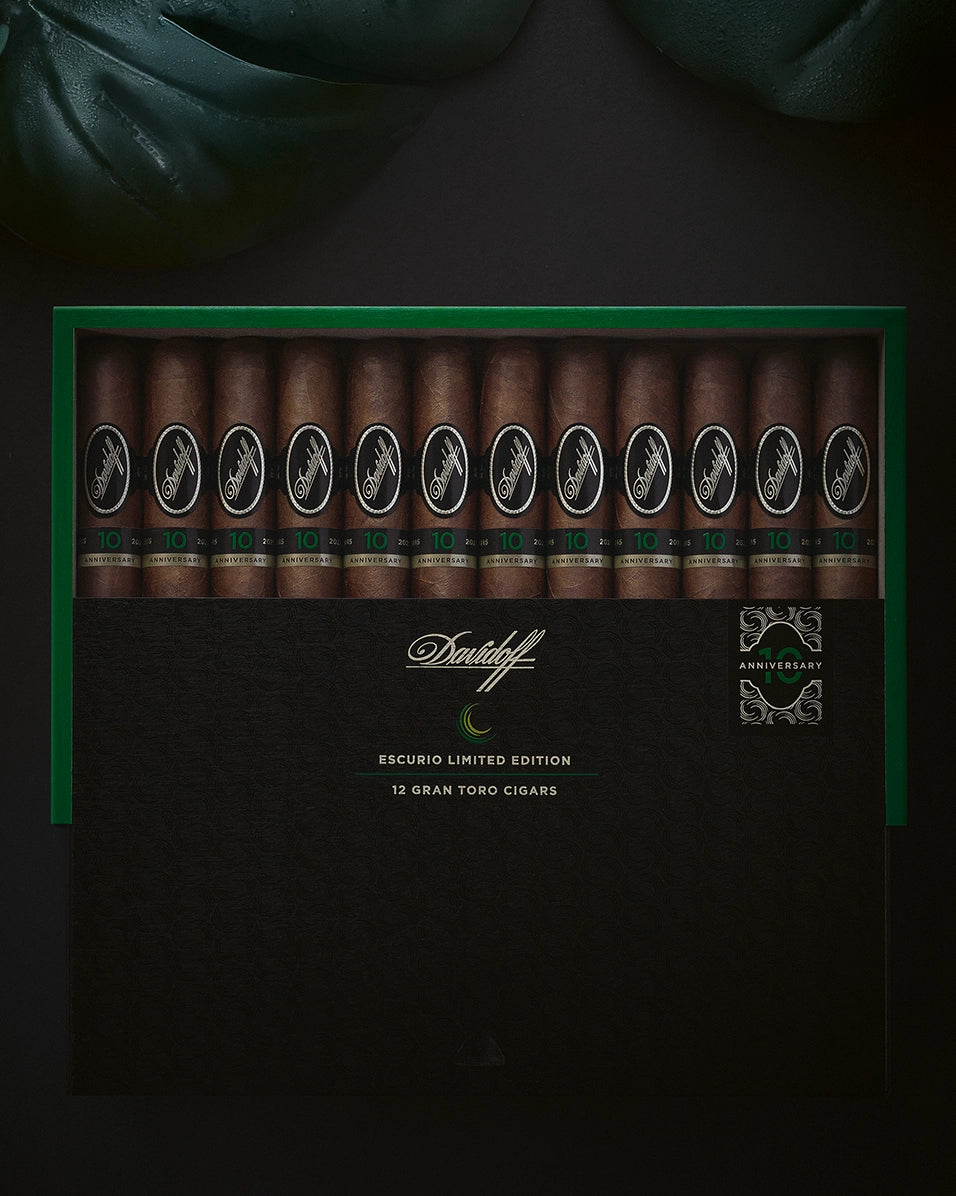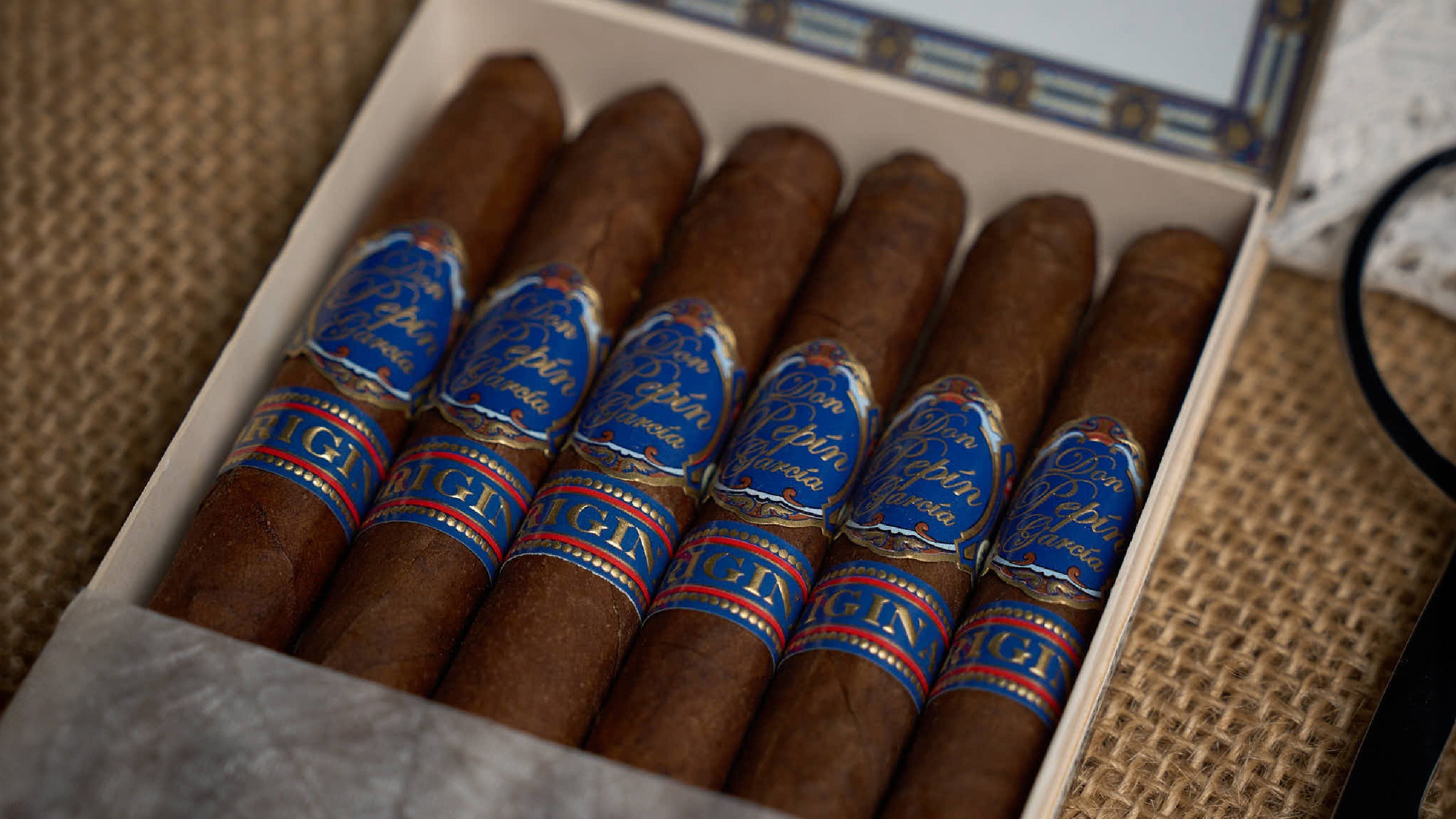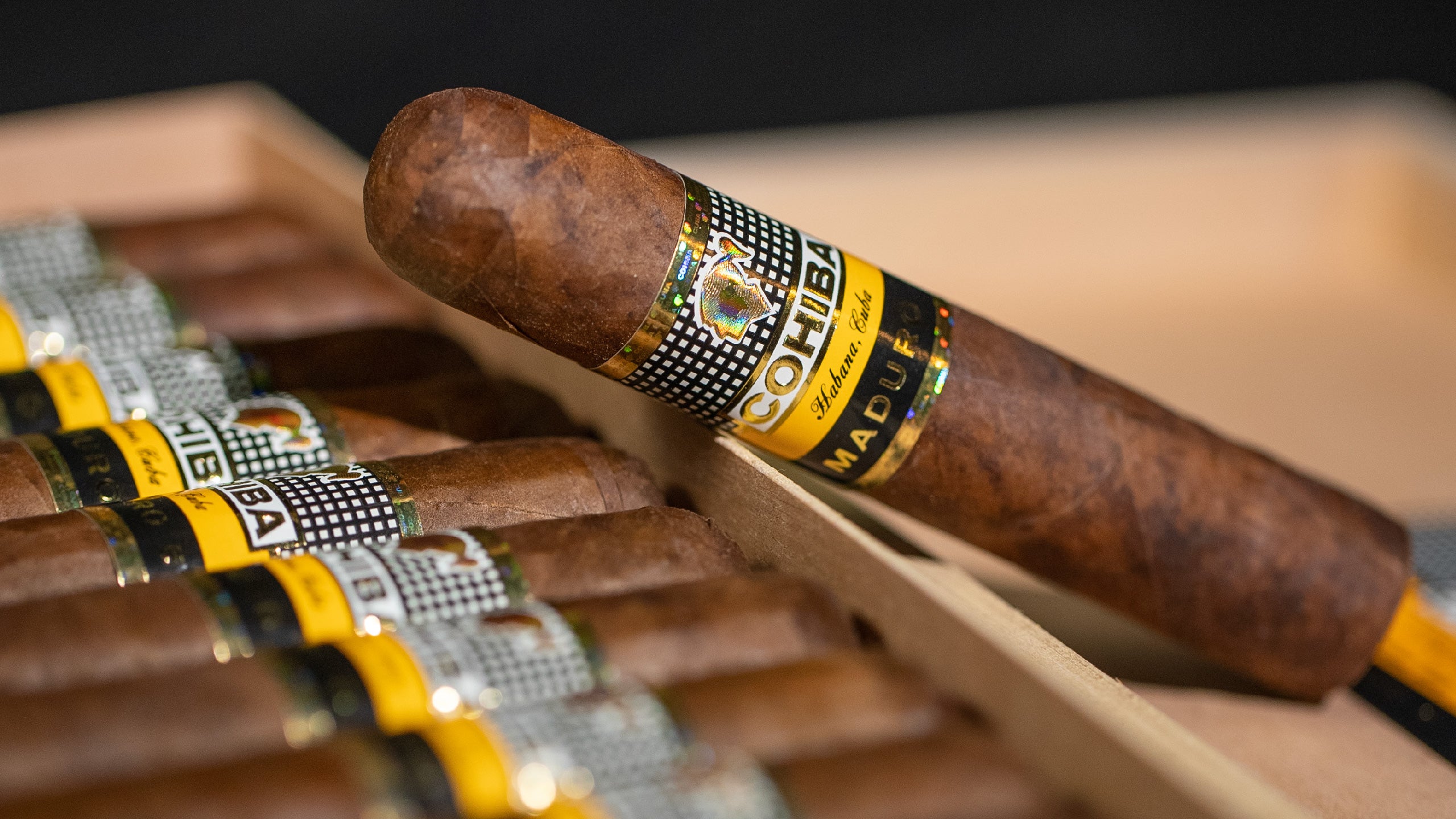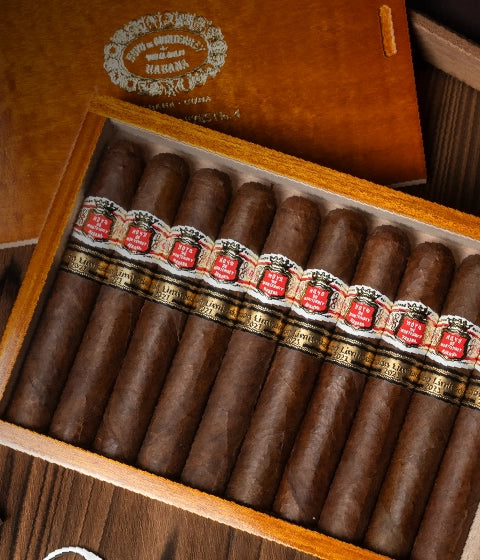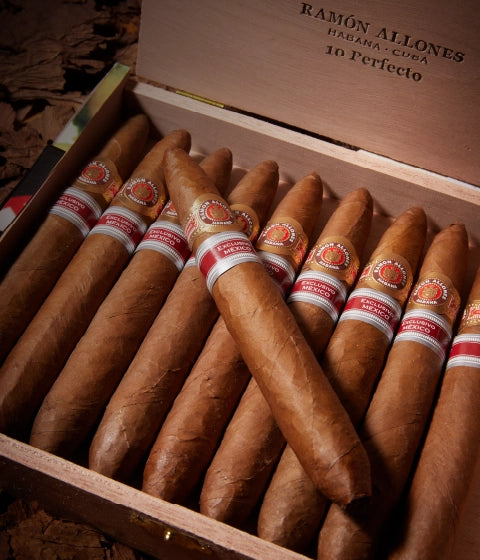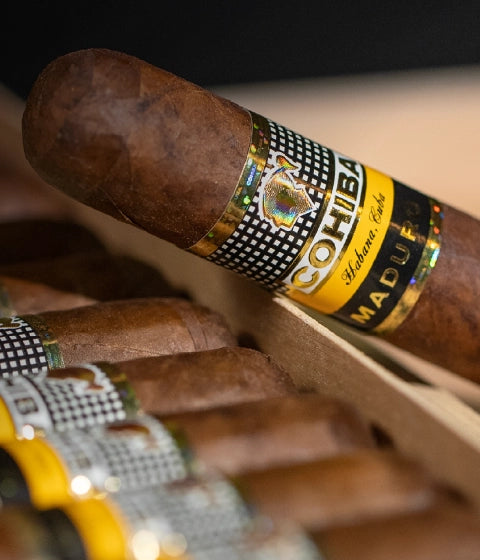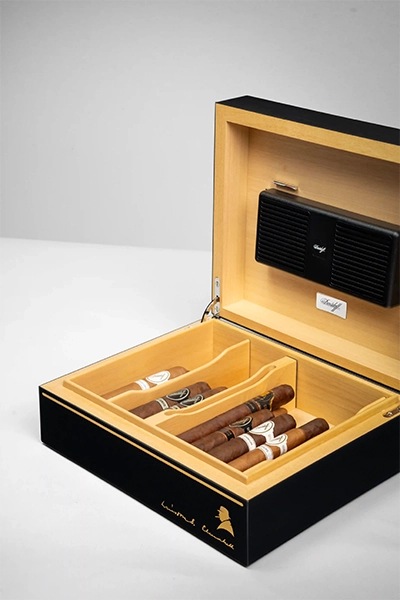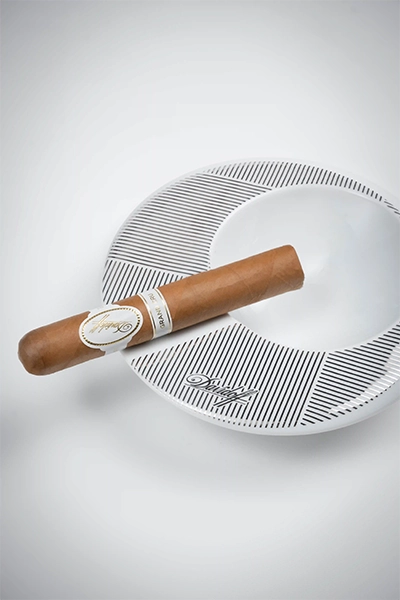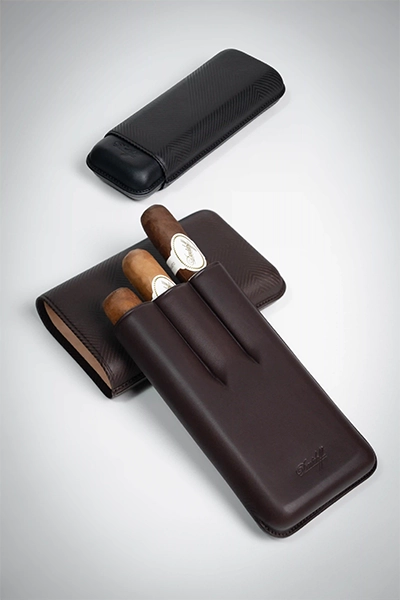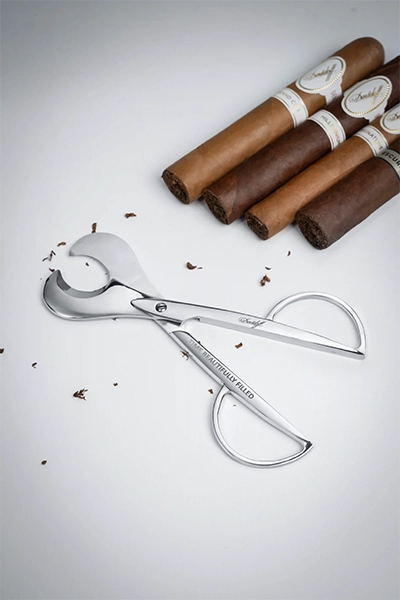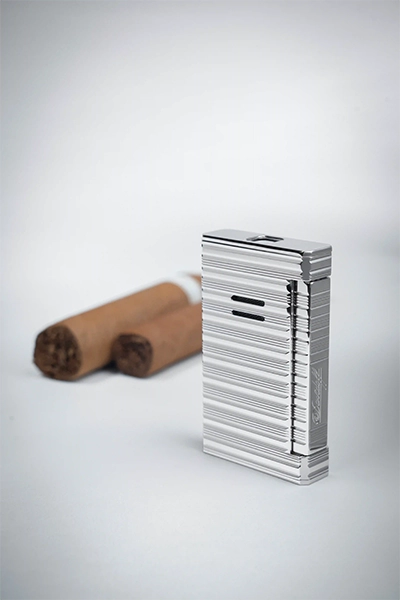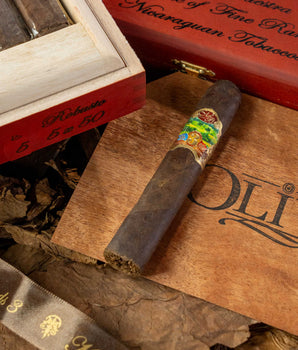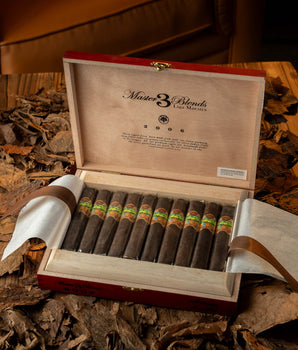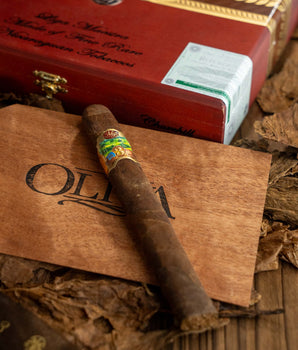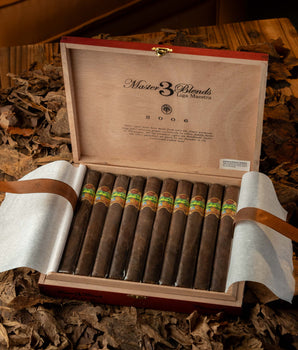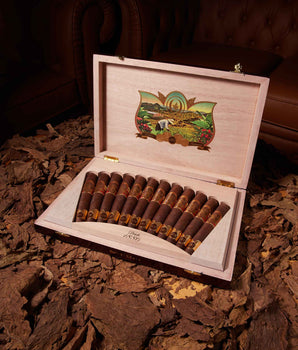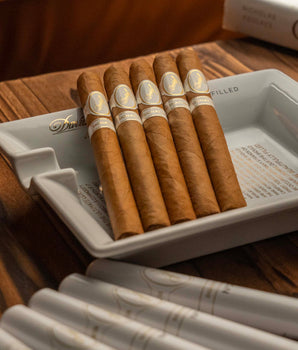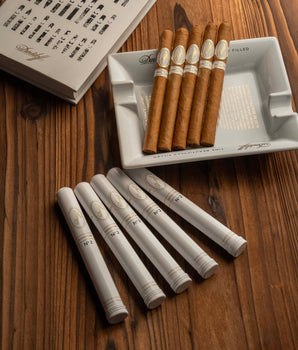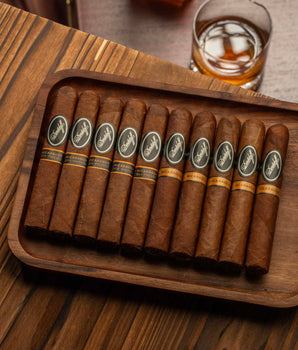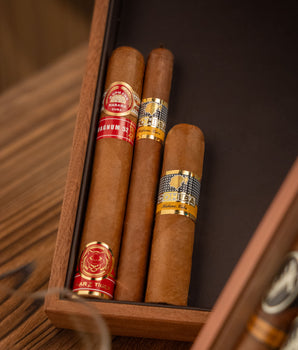Cigar lovers regularly ask if they should store their cigars with the cellophane on or off. While the decision boils down to personal preference, let’s look at why cigars come in cellophane in the first place to understand its benefit.

What is Cellophane?
Cellophane is regenerated cellulose manufactured into a thin transparent sheet. Cellulose is derived from the cell walls of plants such as cotton, wood, and hemp. Cellophane is not plastic, although it’s often mistaken for plastic.
Cellophane is very effective at protecting surfaces from grease, oil, water, and bacteria. Because water vapor can permeate cellophane, it is ideal for cigar packaging. Cellophane is biodegradable and is widely utilized in food packaging.
Cellophane was invented in the early 1900s by Swiss chemist Jacques E. Brandenberger. He was inspired to create a waterproof coating after witnessing wine spill on a tablecloth at a restaurant. Brandenberger spent more than 10 years perfecting the film, eventually adding glycerin which dramatically softened the material and increased its application potential. In 1912, Brandenberger officially christened his invention cellophane, derived from the combination of cellulose and diaphane, meaning “transparent.”

The Real Benefits of Cellophane on Cigars
Although the natural sheen of a cigar’s wrapper is partially obscured by a cellophane sleeve in the retail environment, cellophane provides many practical benefits when it comes to shipping cigars and displaying them for sale.
If a box of cigars is accidentally dropped, cellophane sleeves create an added buffer around each cigar inside the box to absorb unwanted shocks, which can cause a cigar’s wrapper to crack. In addition, improper handling of cigars by customers is less of an issue with cellophane. No one wants to put a cigar in his or her mouth after somebody’s fingerprints have covered it from head to foot. Cellophane creates a protective barrier when customers touch cigars on store shelves.
Cellophane provides other advantages for cigar retailers. One of the biggest is barcoding. Universal bar codes can easily be applied to cellophane sleeves, which is a huge convenience for product identification, monitoring inventory levels, and reordering. Scanning a barcode into a computer is much faster than manually counting the back stock of single cigars or boxes.
Some cigar-makers will wrap their cigars partially with tissue paper or rice paper as an alternative to cellophane. In this way, barcoding and handling issues are addressed, while a cigar’s wrapper leaf is still visible in the retail environment.
Cigars also age in a more uniform capacity when the cello is left on. Some cigar lovers prefer the effect, others don’t. It often depends on a particular blend and your preferences as a cigar lover. Cellophane turns a yellowish-amber colour when stored for a long time. The colour is any easy indicator of aging.

Should I Leave the Cellophane on My Cigars or Not?
Because microscopic pores are present in cellophane, humidity is able to permeate the sleeves cigars are wrapped in. However, less moisture reaches cigars kept in cellophane than cigars removed from their cellophane sleeves.
Generally, if you plan to store your cigars for several months or longer, it is recommended to remove the cellophane. Removing your cigars from cellophane sleeves encourages the aging process and your cigars will absorb and exchange precious oils and aromas within the overall environment of your humidor. For the same reasons, it is recommended to remove cigars that are packaged in aluminium, glass, or wooden tubes.
If you prefer a more uniform taste, you can leave the cello on. If you’re storing your cigars for a shorter time or if you plan to travel with your cigars, you may also consider leaving the cello on. A cigar’s wrapper is fragile and the protection a cellophane sleeve offers is significant if you’re sliding a cigar into your breast pocket. You can always remove the cello when you put your cigars in your humidor and hang onto a few sleeves in case you need them later. Slide your cigars back in the sleeves when you need to travel with them.

Does Cellophane Change the Taste of My Cigars?
Yes, but marginally in the short term. Cigars aged for longer periods will exhibit more dramatic shifts in taste. Choose a cigar of your liking and store a few both in, and out of, cellophane for a few months and smoke them in close proximity to decide which one you prefer.

